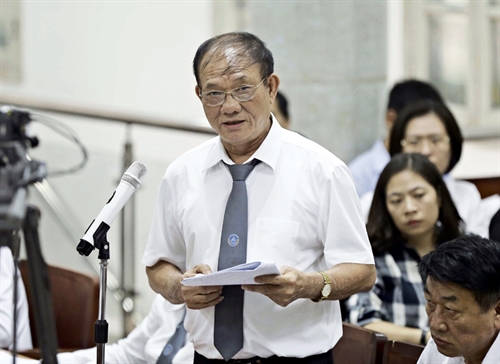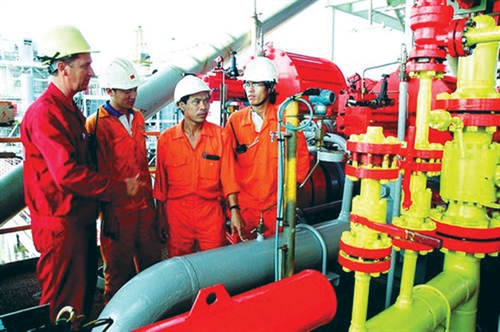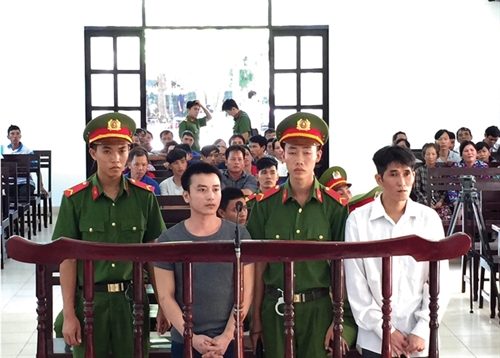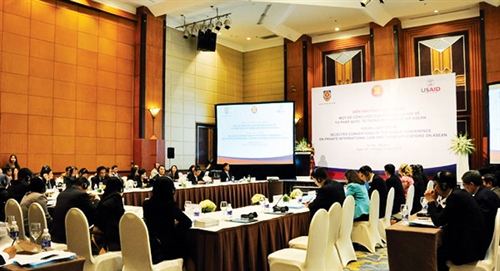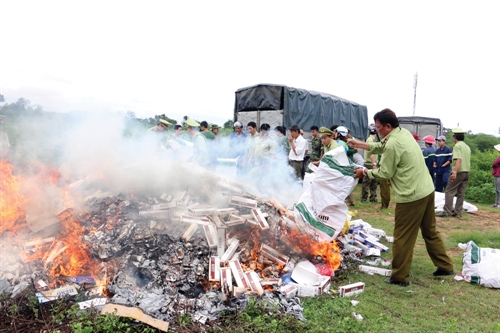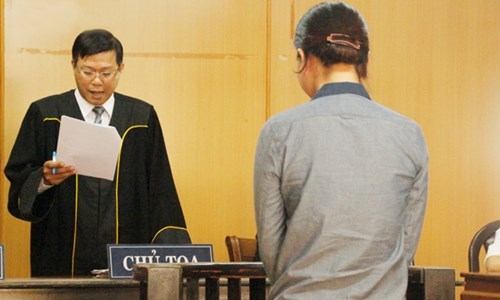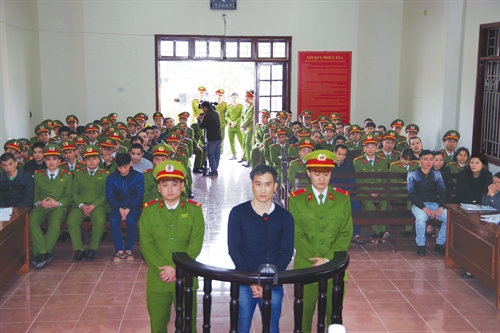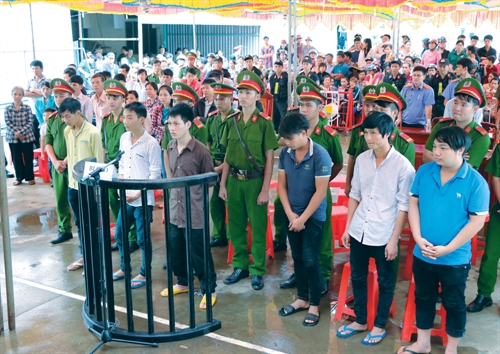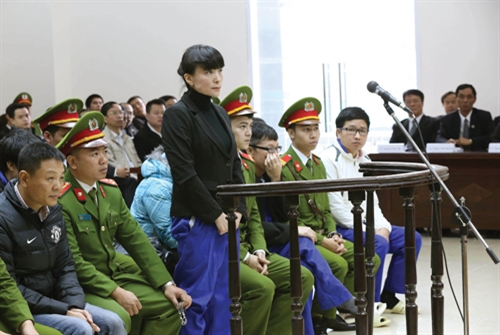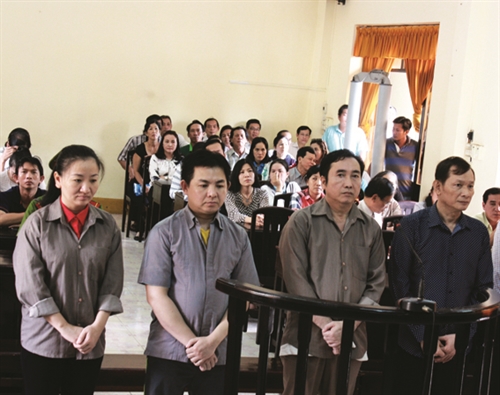This article analyzes new provisions in the 2015 Penal Code concerning position-related crimes, which are expected to give more teeth to the fight against corruption in the country.
Nguyen Cong Long
National Assembly Office
Requirements on the Penal Code to be an effective anti-corruption tool
Further improving institutions, raising operation effectiveness of the state apparatus and fighting corruption have become urgent in Vietnam. Particularly, fighting corruption not only is a motto but also a constitutional duty. Article 8.2 of the 2013 Constitution states: “All state agencies, civil servants and public employees shall resolutely combat corruption, waste and all manifestations of bureaucracy, arrogance and authoritarianism.”
Anti-corruption efforts exerted by the State and the Party in Vietnam over the past years are tireless but their effectiveness is still limited.
Among anti-corruption tools, criminalization of corrupt acts is always highly effective for its deterrent, preventive and punitive effects. However, Vietnam has for long viewed corruption as a disease associated with state power, only regarding persons working in the state apparatus who abuse their positions and powers for self-seeking purposes as corruptors. Corrupt acts can occur only in state agencies, not in the non-state sectors.
Under Article 1.3 of the 2005 Anti-Corruption Law, only persons with positions and powers can commit corrupt acts. They include:
“a/ Officials, public servants, public employees;
b/ Officers, professional army men, defense workers in agencies or units of the People’s Army; officers, non-commissioned officers, professional- technical officers, non-commissioned officers in agencies or units of the People’s Public Security;
c/ Leading and managerial officials in state enterprises; leading and managerial officials who are representatives of the State’s contributed capital portions at enterprises; and,
d/ Persons assigned tasks or official duties who have powers while performing such tasks or duties.”
Therefore, to control official-duty activities of officials and civil servants with a view to curbing corruption, the current criminal policy only focuses on handling these persons. Article 277 of the 1999 Penal Code defines position-related offenders as “those who are assigned through appointment, election, contract or other arrangements, with or without salaries, to perform certain official duties and have certain powers while performing such official duties.” By this definition, relations arising in the private sector between organizations and individuals in a “freewill, equal and agreed manner” are not regarded as acts of abusing positions and powers for self-seeking purposes.
In the course of social development and operation of a market economy, relations in the private sector have become much more complicated and exerted great impacts on social life. Consequences of corrupt acts in the private sector are no less serious than those of corrupt practices in the public sector since they involve the same social relation being proper operation of state agencies and other organizations. Therefore, anti-corruption measures should not be limited in the public sector as the country is more deeply integrating into the global community and building a society of integrity and a healthy business environment. Vietnam has been striving to incorporate into its domestic laws the provisions of the 2004 United Nations Convention against Corruption (UNCAC) which it signed in 2003 and ratified in 2009. As per Article 12.1 of the UNCAC, each State Party shall take measures, in accordance with the fundamental principles of its domestic law, to prevent corruption involving the private sector, enhance accounting and auditing standards in the private sector and, where appropriate, provide effective, proportionate and dissuasive civil, administrative or criminal penalties for failure to comply with such measures.
As such, in addition to concretizing Article 8 of the 2013 Constitution, the 2015 Penal Code (the Code) has many provisions aiming at:
- Incorporating the provisions of the treaties concerning prevention and combat of corruption and position-related crimes, particularly the UNCAC, to which Vietnam is a state party and required to increase measures to combat corruption not only in the public sector but also in the private sector;
- Realizing the policy of meting out tougher penalties against those who abuse their positions and powers to commit crimes. The higher positions they have the tougher penalties they should face in order to deter other position holders[1]; and,
- Removing problems in the application of current regulations on position-related crimes, thereby increasing the effectiveness of the punishment of offenders in conformity with the socio-economic development conditions.
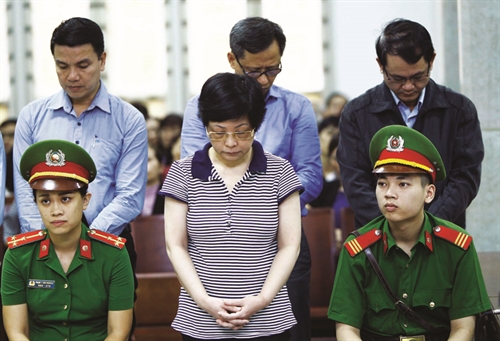 |
| Defendant Chau Thi Thu Nga, a former National Assembly deputy, and her accomplices at the hearing for appropriating property through swindling, held by the People’s Court of Hanoi on October 16__Photo: An Dang/VNA |
New provisions on position-related crimes
Chapter XXIII of the Code regarding position-related crimes includes 15 articles (Articles 352 thru 366). The number and structure of these articles are the same as those of the 1999 Penal Code, e.g., they are divided into two sections on corruption crimes and other position-related crimes. However, regarding the scope of criminalization and penalties, there are many significant revisions.
Firstly, to translate the provisions of relevant treaties into domestic law and ensure the fulfillment of Vietnam’s anti-corruption commitments, these articles have been designed up to the standards set forth in the UNCAC, including:
(1) A wider range of position-related criminals:
The Code has a new definition of position holder. Accordingly, a position holder is the one assigned through appointment, election, contract or another form, with or without salary, to perform a certain task and has certain powers when performing official duties or tasks (Article 352.2). By this definition, position holders are no longer limited to officials and civil servants assigned to perform official duties but also include those assigned by agencies or organizations to perform certain tasks. As such, persons holding positions and powers in non-state enterprises or organizations may be punished for committing typical corruption crimes, namely embezzling property and receiving bribes.
(2) A broader scope of criminalization:
Compared to the 1999 Penal Code, the new Code extends the criminalization of corrupt practices to the private sector in terms of offenders and infringed social relations. Article 353.6 on embezzling property says that persons with positions and powers in non-state enterprises or organizations who embezzle property shall be criminally punished. Article 354.6 on receiving bribes has a similar provision. Other non-corrupt position-related acts infringing upon social relations in the private sector are also treated as criminal offenses. Under Article 364.6 on offering bribes, a person who offers or intends to offer bribes to a foreign public employee, an employee of a public international organization, or a person with position in a non-state enterprise or organization shall also be criminally dealt with. Article 366.7 on acting as intermediaries in bribery also sees any person who acts as an intermediary in bribery at a non-state enterprise or organization as criminal offender.
In light of Article 21.a of the UNCAC, the Code says that no matter a bribe is received by or offered to a person himself or another person, the bribe recipient or offerer shall be criminally punished.
(3) A broader scope of bribery:
To help handle corruption crimes more effectively and make its provisions on corruption and position-related crimes consistent with the UNCAC, the Code adds in Article 354 (Receiving bribes), Article 364 (Offering bribes) and Article 366 (Acting as intermediaries in bribery) non-material elements (non-material benefits or advantage) as a basic constituent of these crimes, along with the material elements (money, property and material benefits).
Secondly, regarding penalties for position-related crimes, the Code retains the death penalty for two crimes of embezzling property and receiving bribes committed in particularly serious circumstances. Other penalties, including imprisonment of 10-20 years and life imprisonment, are also kept unchanged for all position-related crimes.
Notably, as stipulated in Articles 28.3 and 61 of the Code, the statute of limitations for penal liability examination and judgment enforcement is no longer applied to those who embezzle property or receive bribes in very serious or particularly serious circumstances (Articles 353.3 and 353.4 and Articles 354.3 and 354.4)[2]. In other words, no matter how long a person who has embezzled property or received a bribe in a very serious or particularly serious circumstance and against whom a criminal case is initiated or who is convicted can hide himself, he can never avoid punishment.
The Code contains not only provisions demonstrating the State’s harsh attitude toward corruption offenders but also provisions aiming to create opportunities for them to show repentance and atone for their crimes. Article 40.3.c stipulates: “The death penalty shall not be executed against a convict who is sentenced to death for the crime of embezzling property or taking bribes but, after being sentenced, (i) voluntarily returns at least three-quarters of the embezzled property or taken bribes and (ii) actively cooperates with the related agencies to detect, investigate or handle crimes, or achieves a feat.”
In this case, the death penalty will be reduced to life imprisonment.
Thirdly, the qualitative elements, such as “causing serious consequences”, “causing other serious consequences”, “causing other very serious consequences” and “causing other particularly serious consequences”, in the position-related crimes, have been replaced with specific and quantitative signs for use as a basis for direct application of penalties, thus reducing the number of sub-law documents that need to be issued to enforce the Code.
For example, in Article 353.2 (Embezzling property), the circumstance of causing other serious consequences shall be determined based on the following signs: (i) Appropriated property: money or property used for hunger eradication and poverty reduction; money, allowances, subsidies or incentives for persons with meritorious services to the revolution; reserve funds, or money or property subsidized or raised for areas affected by natural disasters, epidemics or areas with particularly difficult economic conditions; (ii) Value of damage caused by the appropriating act: causing property damage valued at between VND 1 billion and under VND 3 billion; (ii) Social impact consequences: Adversely affecting the life of officials, civil servants, public employees and other employees of agencies or organizations.
The same is stipulated in Article 353.3 and Article 355 (Abusing one’s position and powers to appropriate property).-
